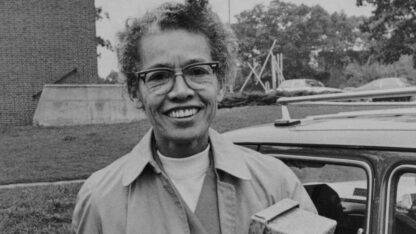The legendary actor Sidney Poitier died on Jan. 6th at 94, and tributes to his remarkable accomplishments in film continue to pour out. Among his life’s many landmarks, Poitier was the first Black performer to win the Academy Award for Best Actor for “Lilies of the Field” in 1963. He once said he felt “as if I were representing 15, 18 million people with every move I made.” Professor Nsenga Burton teaches film and media studies at Emory University and joined “City Lights” host Lois Reitzes to discuss Poitier’s film career highlights and extraordinary legacy.
Selected insights on the films of Sidney Poitier:
“Paris Blues” (1961) – “I like it because it really does show Sidney Poitier in a kind of complicated character. He received lots of criticism over his career regarding his very stoic and respectable representations, and so I think in this movie, he does that, but he also really challenges this whole idea of the types of characters that he plays because the character that he plays in this particular film is definitely self-serving, is definitely part of a subculture, I guess you could say — because he’s a jazz musician in Paris … It’s just a very interesting look at what it means to be Black, globally Black.”
“People talk about Sidney Poitier, like, ‘Oh, he’s the first Black man to kiss a white woman in a film.’ Well, he kissed her on the cheek. But to show Black people in love or having any type of affection onscreen in Hollywood was not happening. So he’s also groundbreaking in that way … and with Black women, too,” said Burton.
“For Love of Ivy” (1968) – “‘I think this is at a time when movies were made, and the idea of you having sex with someone meant that there was going to be more afterwards, right? So you were going to be together, or you were going to be married … He and Abby Lincoln are still constrained because of the representation, the historical representation of Black men and women in relationships on film, particularly in Hollywood,” said Burton. “So I think they have to be careful about how they showed them being in love with each other, making love with each other. But I do like that we get to see the courtship. We get to see Black people, you know, doing what regular folks do.”









